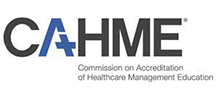Today’s health care systems need professionals who can examine public health issues that will help guide practices and policy decisions as well as address the growing needs of underserved populations.
Ohio State’s health services research minor and certificate provides students and working professionals with the tools to conduct and interpret reliable research that addresses costs, access to and quality of health care as well as the processes and outcomes of health services and policies.
This 15-credit program combines online and in-person learning to provide students with essential skills needed to generate research questions about the structure of health care systems and the social, political and economic factors underlaying population health.
Current Ohio State graduate students can pursue the minor. Working professional or non-degree students can pursue the graduate certificate.
Students completing the curriculum for either the graduate-level minor or graduate certificate in Health Services Research will be prepared to:
- formulate and design a research study in a topic of health services research and health policy
- apply and interpret general health services research and statistical methods
- select health services research methods appropriate for a research question
- interpret results of health services research
- associate research findings to contemporary health policy issues and health professional practices
Requirements
- Bachelor’s degree (including foundation courses in college-level public health, public policy, psychology, economics, sociology, statistics, or the equivalent)
- Meet all requirements established by The Ohio State University Graduate School for admission to graduate-level academic certificate programs (GRE is not required)
- Maintain a 3.0 GPA or higher throughout curriculum
- Students pursuing a graduate degree in the College of Public Health may overlap a maximum of 6 credits with their graduate degree and the Certificate.
Curriculum
The health services research curriculum emphasizes the following areas:
- organizations for the delivery of health care
- public and private health insurance and financing
- methods to measure individual and population health outcomes
- methods for assessing the impact of health policy on individuals and populations
- comparative effectiveness methods for assessing the impact of policy on health care and patient outcomes
| Course number | Course name | Credits | Delivery Mode | Term Offered |
|---|---|---|---|---|
| PUBHHMP 6610 | Introduction to Health Care Organization | 3 credits | Distance Learning | AU |
| PUBHBIO 6210 | Applied Biostatistics I* | 3 credits | Distance Learning | SU, AU, SP |
| PUBHHMP 6625 | Leveraging Healthcare Data for Practice and Policy Change | 3 credits | Distance Learning | SP |
| Course number | Course name | Credits | Delivery Mode | Term Offered |
|---|---|---|---|---|
| PUBHBIO 6250 | Regression Methods for the Health Sciences** | 3 credits | Distance Learning | AU |
| PUBHHMP 7605 | Introduction to Health Policy | 3 credits | In-person | AU |
| PUBHHMP 7624 | Health Economics for Experienced Professionals | 3 credits | Distance Learning | AU |
| PUBHHMP 7678 | Approaches to Health Services Research | 3 credits | In-person | SP |
| PUBHHMP 7686 | Qualitative Methods for Health Research | 4 credits | In-person | every other year |
*Students who have taken PUBHLTH 6001 or PUBHBIO 6210 may choose to take PUBHBIO 6211 to fulfill this requirement. Additionally, students who have taken a statistical course equivalent to PUBHBIO 6210 may choose to take PUBHBIO 6211 to fulfill the requirement, upon approval.
**PUBHBIO 6211, or an equivalent class, is a prerequisite for PUBHBIO 6250.
Admissions
Current Ohio State degree seeking graduate students
Pursue the graduate certificate
Completed the coursework?
Not an Ohio State student?




